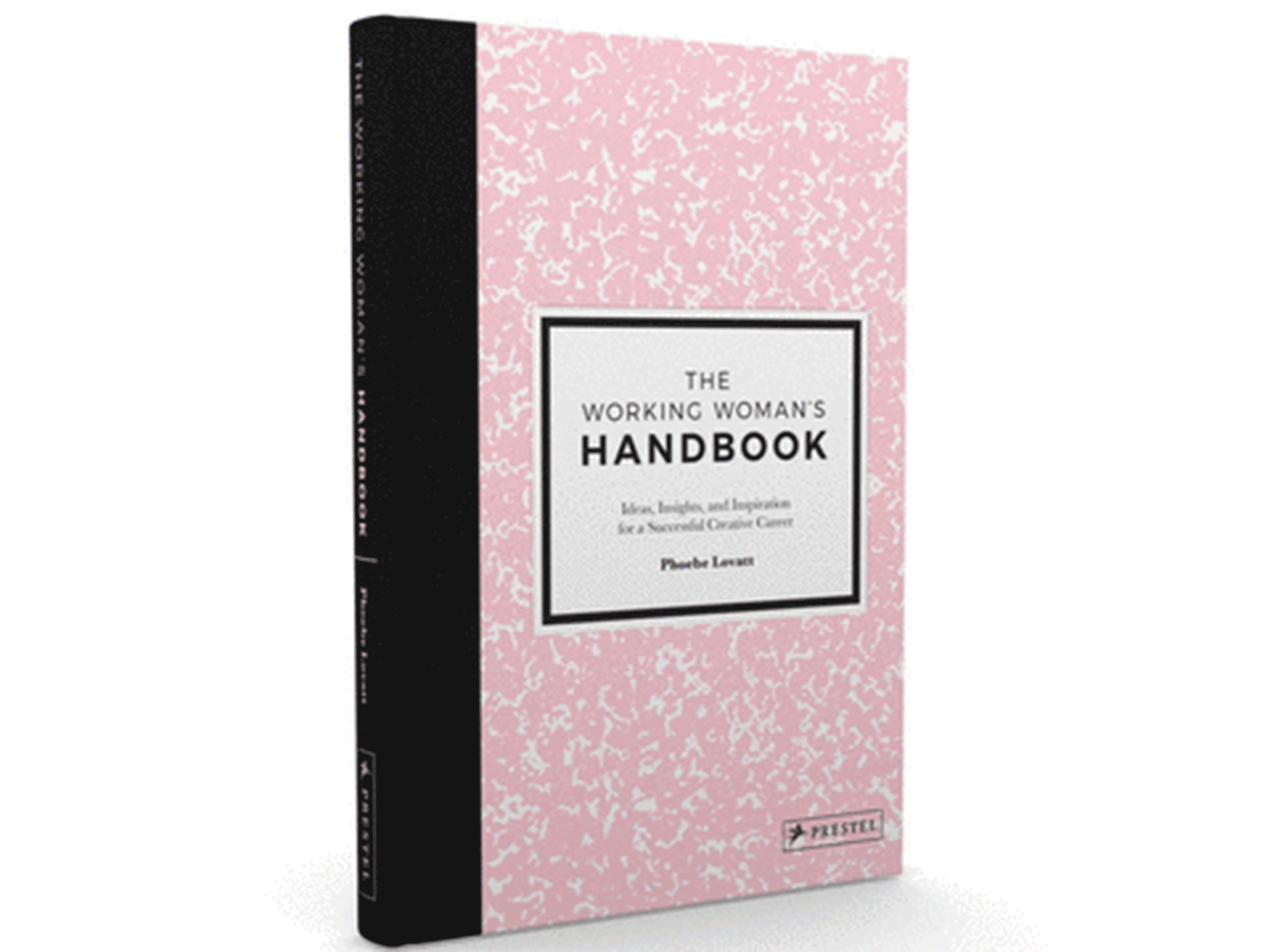The Independent's journalism is supported by our readers. When you purchase through links on our site, we may earn commission.
The Working Woman's Handbook: Author Phoebe Lovatt on the most important lessons she has learned about success
The Working Women's Club founder on why women lack confidence in their own skills, and why it's problematic to 'act like a man'

Women being in the workplace en masse is such a recent phenomenon that phrases like "women in the workplace" are sadly still relevant.
Of course, feminists have made huge advances when it comes to overturning sexist laws in the fight for civil rights, but there is still much further to go before everything from the pay gap to sexual harassment is obliterated from the workplace and the glass ceiling is smashed.
Take the fact that 4 November is the day women theoretically stop being paid due to the gender pay gap. And that recent research by the global management consulting firm McKinsey and LeanIn.org shows that women account for 47 per cent of entry-level employees, but a third of senior managers. For women of colour, these figures drop from to 17 and 8 per cent, respectively.
Enter Phoebe Lovatt, a writer and founder of a global community called the Working Women's Club who is trying to making succeeding in a world where the odds are stacked against women that little bit easier. We spoke to her about her newly released book The Working Woman's Handbook, and about the career lessons she has learned before hitting 30.
In the book you say that a lack of information, guidance, support and confidence holds women back. How can you relate to this?
I’ve been lucky to build my career with the support of some remarkably strong, creative, and self-empowered women, but even I have had times of feeling hindered by own self-doubt or lack of knowledge. The world of work is evolving at a dizzying pace, and even our most trusted sources of advice and guidance (parents, teachers, mentors) can’t always answer our contemporary career questions. The Working Woman’s Handbook takes a distinctly modern approach to building a career in the current age, covering topics such as dealing with social media-related anxiety, and pitching via email, that you won’t find in traditional career guides.
Why do you think women lack confidence in their own skills?
I don’t think all women lack confidence in their skills, all the time - I think we have moments of feeling self-confident, and moments of feeling less confident, just like all human beings. The difference is that, as women, we are not encouraged to advocate for ourselves in a professional or public context, whether that means negotiating a salary or speaking up in the face of unjust treatment (as the Weinstein case so despicably illustrates).
The system is not set up to support women to ascend to positions of leadership and economic empowerment, so we have to really be sure to support each other in lieu.

Why did you take it upon yourself to help other women with this book?
When I moved to Los Angeles from my hometown of London in 2012 at the age of 24, I became highly aware how privileged I’d been to cut my teeth amidst incredibly strong, successful women in the epicentre of the world’s most creative and dynamic city.
I wanted to pay that privilege forward for the benefit of other women who might not be in such a fortunate geographic or social position, so I started The WW (Working Women’s) Club which is a platform and community that supports professional women worldwide through global events, a podcast and newsletter, and a thriving online community.
What is the most important lesson you have learned about succeeding in your career?
I’m still not even 30, so I have long way to go before I can impart my ‘most important’ lesson! But on a personal level, my own career trajectory has taught me, time and time again, that fortune favours the bold. I’ve taken a lot of risky decisions, from turning down well-paid corporate jobs, to moving to the US on my own with hardly any money in my pocket at the age of 24. I won’t pretend it hasn’t been hard at points, but the pay-off is a life and job that is entirely of my own making. To me, that’s priceless.

Do you think men can benefit from the book, perhaps to understand what women struggle with?
The book isn’t about ‘women’s struggle’ per se - it’s a work-focussed manual that aims to provide the information and insights you need to build a career you love in the current world. As such, I hope both men and women could benefit from it equally.
Do you think it's useful for women to 'act like men' when trying to succeed in their careers? For instance, being more demanding when it comes to pay or positions and so on. Or do you think that perpetuates a working culture we should move away from?
I think phrases such as ‘act like men’ are quite problematic in that they certainly perpetuate outdated gender norms. I believe ‘masculine’ and ‘feminine’ qualities are found in people of all genders, and that we could all benefit from seeking the most harmonious balance of these traits.
What are some of your favourite tips from the book from other women?
Too many to list! But a current favourite is one from Teen Vogue’s Editor-in-Chief Elaine Welteroth, which reads: “We all have an obligation to self-actualise. That is your singular goal on this planet. If you feel like you are meant to be here for a certain reason, you have to follow that. No boy can get in the way; no sexy job title that you’re no excited about; no amount of money can keep you from that pursuit.”
What do you want readers to take from the book?
Ideally, lots of practical Inspiration and information that will help them overcome any work-related challenges that might be holding them back, as well as reassurance that we’re all dealing with the same anxieties and fears.
Join our commenting forum
Join thought-provoking conversations, follow other Independent readers and see their replies
Comments
Bookmark popover
Removed from bookmarks